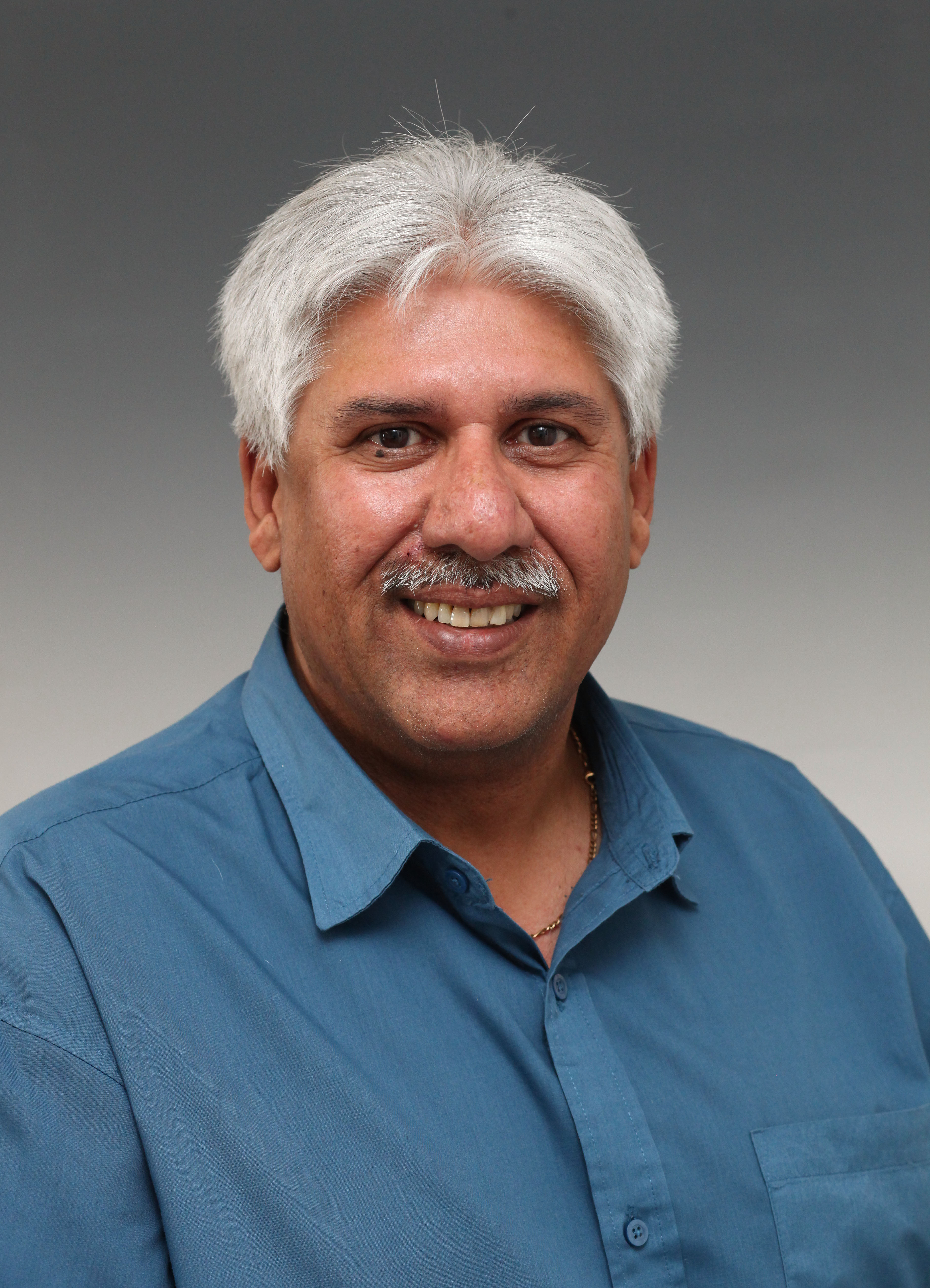Duke Bedi
Duke Bedi, Corporate Environmental Protection
What I particularly appreciate in our working group is the great cooperation and mutual support.
What was your path to the University of Kassel?
I am a state-certified technician specializing in environmental protection and was employed for 23 years at the University Hospital in Giessen as an environmental officer. That was a very great job in a great working environment. But: That was also a daily commute of about 2x120 km from my home in the Kassel area.
A few years later, in 2013, as a result of the privatization of the two university hospitals in Giessen and Marburg in 2008, the opportunity arose to move within the Hessian State Institutes. The year 2013 was not only a great stroke of luck for me, but also my favorite club the F. C. Bayern Munich won the triple, the championship, DFB Cup and Champions League that year. Accordingly, it could really only be a great year. I initially received a contract at the University of Kassel that was limited for three months. The three months will turn into ten years in 2023. The change was a great stroke of luck for me with the interesting working environment and a great team.
What is your job?
At the beginning of my job, one of my core tasks was to introduce a new, optimized waste management concept. At the university, too, there has been a renewed focus on the conscious use of resources. This is also reflected in the fact that our team is coordinating the "Sustainability Development of University Operations" and that the University of Kassel is setting the course for the future by opening a Green Office. That's a good thing, too, since these areas have "fluid transitions" in some cases.
What does an optimized waste concept look like in practice?
At the University of Kassel, a waste concept has been practiced for many years that deviates significantly from the usual disposal practice in private households. As a rule, only containers for residual waste and - depending on the location or building - for waste paper were available for the disposal of recyclable and residual materials in the offices. There was no targeted and differentiated collection and recycling of recyclable materials such as organic waste or lightweight packaging. These historically developed disposal logistics did not comply with the requirements of the Closed Substance Cycle and Waste Management Act at the time. So in 2010, a study was conducted on how a modified waste concept could be implemented in a practicable manner. This is where I come in. The study was available, but it was not possible to implement it until 2013 because there were no free capacities in terms of personnel. And so my path led me to Kassel.
How is the team organized?
Each member of our team has his or her own areas of focus. But what I particularly like and appreciate about our cooperation is the mutual support. This was particularly evident during the Corona pandemic. In addition to the numerous tasks for which we are responsible, since the pandemic we have had to supply the departments and the central facilities with Corona protective equipment. This was a major logistical and organizational challenge that we were only able to master as a team. Good teamwork is extremely important to me; after all, I spend almost more time with my colleagues than I do at home. And this collegial cooperation can of course only work if everyone supports each other.
What is your favorite place at the University of Kassel?
Every location at the University of Kassel has its own flair. I'm thinking of Holländischer Platz with the student house. The building has been carefully renovated and remodeled in recent years. The external appearance of the facades has remained largely unchanged in terms of design and has become a gem and showpiece. Or the Witzenhausen site with its old monastery, which houses the Department of Ecological Agricultural Sciences, or, or, or.
